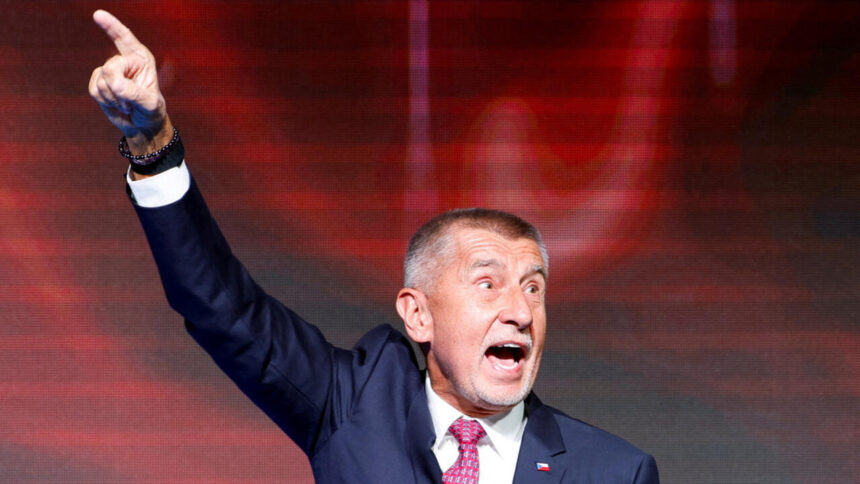Former Czech Prime Minister Andrej Babiš has staged a dramatic political comeback, winning the country’s parliamentary elections four years after being ousted from power.
With 95% of the votes counted, results show that Babiš and his party ANO (Action of Dissatisfied Citizens) have emerged as the clear winner. However, he falls short of an outright majority, meaning difficult coalition negotiations lie ahead.
These elections were closely monitored by EU and NATO allies due to their potential impact on Ukraine policy. Analysts warn that if Babiš relies on the far-right SPD party—which advocates for leaving the EU and NATO and supports pro-Russian positions—the country’s foreign policy could face a major shift.
Jan Machacek, foreign policy advisor to Czech President Petr Pavel, described this possibility as “very dangerous,” stressing that SPD is extremist, anti-Ukraine, and pro-Russia.
Babiš, 71, has campaigned on Euroskeptic rhetoric and hinted at ending Czech participation in the EU-led ammunition initiative for Ukraine. However, he has rejected the idea of withdrawing from the EU or NATO.
Political commentator Jiri Pehe noted that forming a stable coalition will be difficult, as most mainstream parties refuse to cooperate with Babiš. Potential allies include the far-right SPD and the small Motorists’ Party, which just entered parliament for the first time.
Babiš has long expressed admiration for Hungarian Prime Minister Viktor Orbán, who has repeatedly blocked EU sanctions on Russia. Yet analysts believe Babiš’s business ties in Western Europe make him more pragmatic than Orbán or Slovak PM Robert Fico.
Since Russia’s full-scale invasion of Ukraine in 2022, the Czech Republic has cut oil imports from Moscow and significantly reduced Russian gas dependency, unlike Hungary and Slovakia which remain heavily reliant.







